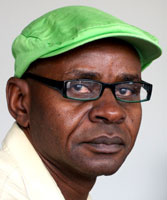
Wary of the SMEs' enormous contribution to African economies, the IFC is hosting a conference in Johannesburg to discuss ways of increasing access to these SMEs.
"We live in a time of rapid change, and the recent events in North Africa have proved that the locus of power is shifting from bureaucracies to individuals and small organic units," Nasim Devji, MD and CEO of Kenya-based Diamond Trust Bank (DTB), told delegates gathered today, 3 May 2011, at the Sandton Sun for the three-day event.
"As banks, our continued success lies on the way we introduce a new thinking to respond to these changes."
Devji, whose organisation has offices in Tanzania, Uganda and Burundi, acknowledged the vital role played by SMEs in the economies of Africa, stating that they contribute to about 75% of employment across the continent.
"But yet, these SMEs are getting less financial and technical support compared to big businesses," Devji lamented.
The conference, which is organised with the support of the Government of the Netherlands and the Austrian Development Bank, is aimed at providing a unique platform to examine the state of SME finance in Africa, the organisers said.
Key banking executives, entrepreneurs, financial security authorities and international development specialists from Africa, Europe and America are all attending the conference, which aims fundamentally at overcoming barriers blocking the growth of small businesses.
"Africa's economy continues to grow at a faster and stronger pace, more than many parts of the developed world. But if we continue to constrain the financial support of SMEs, Africa will not feel the true benefit of this strong economy growth," Aigboje Aig-Imoukheude, of Access Bank of Nigeria, said.
"And if we don't address the issue of jobs creation by powering the SMEs, we might one day see a big fight in my country and yours, because people would believe that we have not been unable to help them realise their dreams," he warned.
It is believed that the biggest victims of this SMEs fall-out are women, who always find it difficult to break through the steel-like wall of the business world, let alone get a business licence. Devji said DTB, a partner of IFC, has trained more than 400 women in four African countries to, primarily, facilitate and expand women's participation in business.
Delegates also heard that African SMEs lack not only financial tools, but also technological knowledge and management skills, and some do not even have a bank account. Low capitalisation and assets, and lack of accounting records, among others, coupled with infrastructure and competitiveness challenges are also some of the 'faults' Aig-Imoukheude said hamper commercial banks' involvement in SMEs. However, he said banks and governments need to work together to address this issue, and design strategies and solutions to help SMEs move forward.
IFC said its SMEs' financial programme is helping banks across Africa to establish or expand lending and other banking services for smaller businesses, providing both financial products and advisory services to participating banks. IFC has invested US$125 million in its partner banks, which have about 40 500 outstanding loans to smaller businesses worth more than US$1.2 billion.
